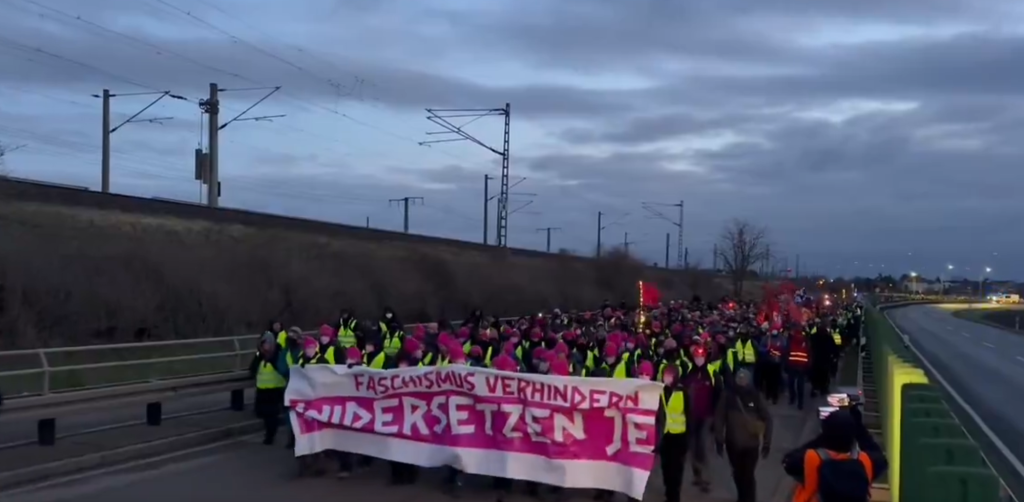Under the banner “No to Nazis!” protesters delayed the event.
Others are reading now
Germany’s political climate has long been shaped by a commitment to democracy and inclusion, but the growing presence of far-right ideologies has sparked concern across the country.
Citizens and organizations have mobilized to counter this rise, emphasizing the need to protect democratic values.
This backdrop has fueled public demonstrations, including a large protest in the town of Riesa over the weekend.
Thousands of demonstrators gathered in Riesa on Saturday to disrupt the Alternative for Germany (AfD) party congress.
Also read
Under the banner “No to Nazis!” protesters delayed the event, which was meant to finalize the party’s platform ahead of federal elections scheduled for February 23.
Pepper spray and Physical Force
The AfD congress aimed to confirm co-leader Alice Weidel as its candidate for chancellor and solidify its proposals, including withdrawing Germany from the EU and tightening immigration policies, according to Digi24.
An estimated 10,000 protesters marched through the streets of Riesa, a town of around 30,000 residents, blocking access to the congress center.
Organizers created roadblocks and barricades, slowing the arrival of the 600 AfD delegates and forcing delays to the meeting.
Widersetzen (“Resist”), the group behind the protest, claimed the disruption as a victory.
“Our protest is working — the AfD congress cannot start,” the organization declared on social media.
The group described its efforts as a stand for diversity and solidarity in opposition to the AfD’s agenda.
The protest was mostly peaceful, but there were moments of tension when demonstrators attempted to breach police barriers.
Law enforcement used pepper spray and physical force in some instances, which organizers criticized as excessive.
Polling shows the AfD is expected to secure 18-21% of the vote in the upcoming elections, placing it second behind the conservative CDU/CSU bloc, which leads with around 30%.
Major parties in Germany have ruled out forming coalitions with the AfD, isolating the party politically despite its rising support.



